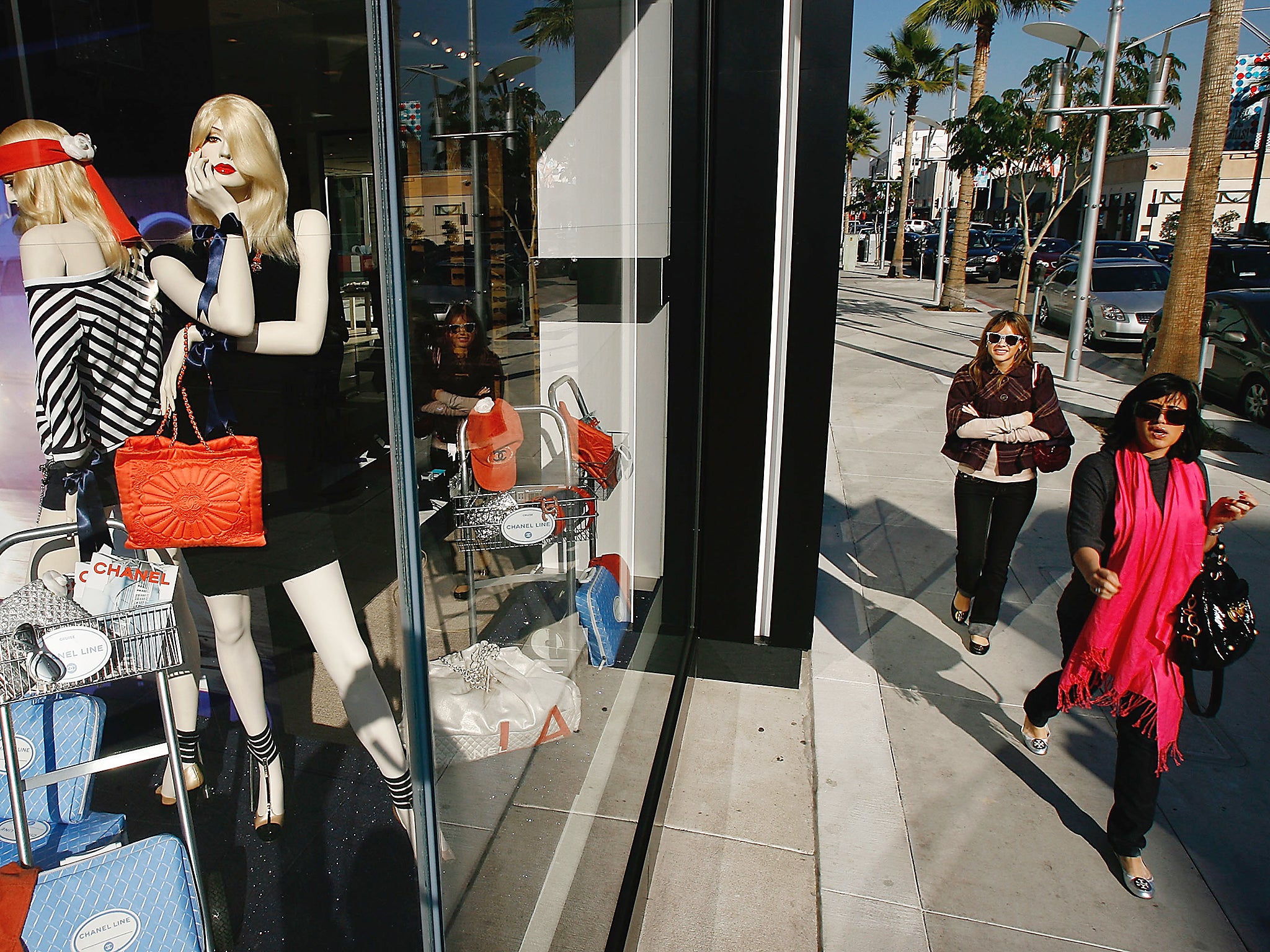The economy is sick, but a luxury tax is one way in which we could solve the crisis in capitalism
We need a tax on luxuries to help protect the environment by reducing the use of resources to produce the goods and services, which by most rational standards, are far from necessary

Over the past three decades, the financial and environmental prospects of the UK, US, Japan and Europe – the so-called developed economies – have been moving in a calamitous direction.
Easy monetary policies have proved to be nothing more than wishful thinking or educated guesses that the policies will reinvigorate the economy by increasing investment. Voters have been lured in by this rationale, led by advertisers and politicians to believe that the more you produce and the more you buy, the more robust the economy will be. Nearly everyone has been beguiled by the promise that lower taxes and invigorated economic performance will benefit all at no cost.
But reality tells a different story.
Real inflation adjusted GDP has averaged only 2.62 per cent in the US since the 1980s. Following the global financial crisis of 2007-8 it fell even lower, to 1.42 per cent. In Japan, the equivalent rates were 2.61 per cent and 1.09 per cent. While the average growth rate in Europe’s largest economies (Germany, France, the UK, Italy and Spain) was 2.42 per cent after the 1980s, plummeting to minus 0.65 per cent after the global financial crisis.
And all the while, insufficient investment has been made to meet societal needs, maintain the physical infrastructure or prevent further degradation of the environment.
This is the farce of the new world in which we live, where despite widening gaps in income and wealth distribution and rising unemployment, the majority of people seem to enjoy the highest standard of living known in human history.
What is needed in the 21st century is a dynamic systemic change of capitalism. It will be a daunting undertaking but to fail to make it would be a grave folly.
Doubt has already been growing among the public about the wisdom of buying and owning a plethora of possessions that clutter our lives, with a growing tide of advocates for minimalism. Ever since the Occupy Movement, which famously declared that capitalism was dead, we have more people demanding change.
Discussions should begin with an increase in tax revenues of 5 per cent of GDP. In the US, this is about $1 trillion and could provide the minimum necessary amount to meet societal needs and increase demand in order to help the American economy to begin to grow steadily to 3 per cent. If the effective tax rate on the top one per cent of income earners was raised to 45 per cent, that would increase tax revenues by $276bn, which is more than a quarter of the $1tn needed. If the effective rate of corporate tax were also raised, by 10 per cent, this would yield an additional $30bn, increasing the total revenue from this tax to $350bn. Similarly, in Japan, an increase in tax revenues of 5 per cent of GDP would yield about $250bn; for Germany, about $190bn.
An international wealth tax needs to be seriously considered. There will doubtless be opposition, but time is on the side of the supporters of such a tax. Disparity in wealth distribution has become an important political issue. Since the 1990s, at summit meetings of the EU and G8, the coordination of efforts to reduce tax avoidance and evasion have been discussed.
We need a tax on luxuries to help protect the environment by reducing the use of resources to produce the goods and services which by most rational standards, are far from necessary. Then there are environmental taxes to consider, from carbon trading to taxes on the use of natural resources.
How we measure GDP needs to change. Our current method dates back to the 1930s and it remains an outmoded form of approximation, when what we need is a more sound qualitative and quantitative analysis as the basis for sound economic policy. That needs to be matched with a change to our political systems, such that the seething frustrations with our current democratic systems are addressed with a more egalitarian approach.
Ultimately, we need as many voters as possible to acknowledge the despairing nature of our current reality and vote for politicians who will do their best to make the necessary changes. It is the only hope for capitalism to endure and thrive, and for democracy to become robust.
Too Much Stuff: Capitalism in Crisis by Kozo Yamamura is published on 2 March by Policy Press ISBN 9781447335658 price £19.99.
Join our commenting forum
Join thought-provoking conversations, follow other Independent readers and see their replies
Comments
Bookmark popover
Removed from bookmarks